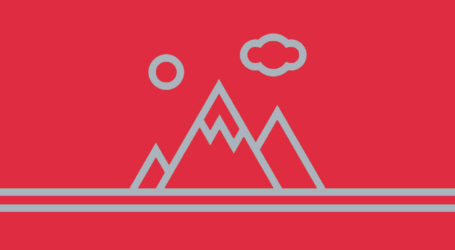Eat, drink and be … healthy?

It is a bright, autumnal Tuscan morning. Woodsmoke rises poker-straight into the sky, the village church jangles the quarter-hours and green-cloaked hills wrap the horizon. I’m in the walled garden of my private villa – vine pergola to the right, olive grove to the left – shadowing the movements of Andrea, my personal trainer. Eyes closed, as instructed, I hold a stretch.
Then (there’s no way to put this delicately) I feel a hot breath around my crotch. I glance down and see the quivering wet nose of Trinity, one of the two resident golden labradors. Ball in mouth, he’s pleading with me to play. Welcome to the new spa at Villa Lucia.
Abandoned in the Fifties, the estate was restored in 2004 to offer casually luxurious stays plus cookery courses that teach robust Tuscan dishes. Like the cookery school, the spa takes a relaxed approach. Chocolate wraps, grapevine massages and truffle facials are on the menu, with red wine and bitter chocolate (consumption of) for afters.
Surrounded by hills, four miles south of Lucca, in the tiny village of Vorno, the 18th-century villa and estate is classic Tuscan grand country living. Wrought-iron gates open onto a creamy gravel drive bordered by cypress and lemon trees and lavender bushes. With four acres of grounds tinkling with fountains, the main villa has the requisite faded grandeur: volumes of cool space, flights of stone staircases, terracotta floors, frescoed walls, chandeliers, heavy antiques, marble basins with serpent-head taps. I burn off a fair few calories just crossing my room between my two bathrooms.
After a welcome glass of prosecco, the offer of a relaxing massage in a shady garden pavilion is just the ticket. Afterwards, I slip into the stone hot tub, its water fed through an enormous shell held by a cheeky-looking statue of Pan (with a fish tail to cover his modesty). Crisp, clinical and conventional, this spa is not.
The products used in the skincare treatments are pretty unconventional too. All natural, they use ingredients such as cocoa beans, grapes, truffles and lavender, and come with a litany of feelgood properties – anti-oxidants, anti-radicals, mineral salts, polyunsaturated fats, diuretics – to stimulate cell renewal, lower hypertension, boost immunity and improve circulation.
I start with a chocolate-oil back massage. Disappointingly, it’s not dark and lascivious – in fact, it’s almost colourless – and only slightly perfumed. The facial is a complete meal. Red grape and sweet almond oil to cleanse, lavender and honey to exfoliate, then a chocolate-oil massage followed by the main course of a black truffle face mask (recommended for, ahem, the more mature skin), rounded off with a truffle, chickpea and wild fennel lifting serum. Had I the energy, I would open my mouth and ask for a spoonful but, by the end, having also had a foot massage, I am so soporific, I need a crowbar to prise me off the massage bed.
I’m wrapped in blankets, propped on velvet cushions and handed a large glass of red wine and plate of chocolate. I could get used to this.
And that would be no bad thing. Much of the villa’s food is influenced by the wine diet, devised by Roger Corder, professor of experimental therapeutics at St Bartholomew’s hospital, London. It proposes that certain natural chemicals within red wine – procyanidins – are key to combating heart disease and diabetes and encouraging healthy blood vessels. Happily, procyanidins are also found in chocolate and various fruits and nuts, including apples and cranberries.
As it happens, Professor Corder is a fellow guest; fiftysomething, slim, equable, with an astonishingly wrinkle-free face. “Healthy eating does not mean ascetic. Moderation is the message,” he says, as I absentmindedly pour myself my third glass of red wine.
Cookery lessons are in the large kitchen of the villa’s former coach house, where acres of marble work surfaces contrast with an ancient wooden wine press. It’s very relaxed. Dogs snooze, guests wander in and out with glasses of wine.
It’s the “good slosh” school of cooking – I’m encouraged to add amaretto to the sabayon and others add port to the pears and wine to the risotto. “If you see something good around you, you use it,” says Glauco, our teacher, adding further alcohol to the risotto. “You can be academic and follow recipes but … ” he shrugs, Italian style.
Despite the casual set-up, we do learn. Ginger, for example, is a good substitute for chilli when you want a gentler kick; risotto can be prepared in advance if you stop at the al dente stage and spread it on a tray to stop it cooking. That night, we drink a sagrantino wine, one of the world’s most procyanidin-rich grape varieties, and lip-puckeringly tannic, and listen to Rossini. I bask in compliments on the post-facial glow to my skin. This could, I realise, also be the effect of the hot kitchen.
The following morning, Andrea takes us through a no-nonsense work-out in the garden. It’s surprisingly tough. He then leads us on a brisk walk through pine and chestnut trees up Monte Zano, which overlooks the village. We work up a respectable sweat, enjoy views to Lucca and the Apuane Alps, and return past olive groves (Bertolli olives, no less) and gardens bursting with buxom tomatoes.
Back at the villa, a pasta-making party is in full swing. David, a tough New York personal trainer, and Sam, a well-connected New York creative director, are dancing around the kitchen in shorts and flour-covered pinnies.
“Do you know what this reminds me of?” Sam drawls as he feeds strips of wafer-thin pasta through the pasta machine. “Ladies’ hosiery!” His floury hands flutter. This is not a place for shrinking violets or privacy-seeking romantics, although the setting is undeniably lovely. Meals are shared at one long table and a lively house-party atmosphere develops. One evening we go to the village bar and the night ends several hours later in the candlelit hot tub.
Does it work? The treatments are delicious, the food unfussily good, the atmosphere non-judgmental, the cooking fun and the fitness programme refreshingly unfaddy (there’s also a pool and small gym). But, while the rooms and grounds are grand and comfortable, there’s a faintly bohemian streak that may not suit all. Paintwork is a little shabby, there are no TVs – although there’s Wi-Fi and a private cinema – and I never get to grips with how to lock my room. But I relax, sleep wonderfully, my skin glows and I develop a healthy new appreciation of red wine.









